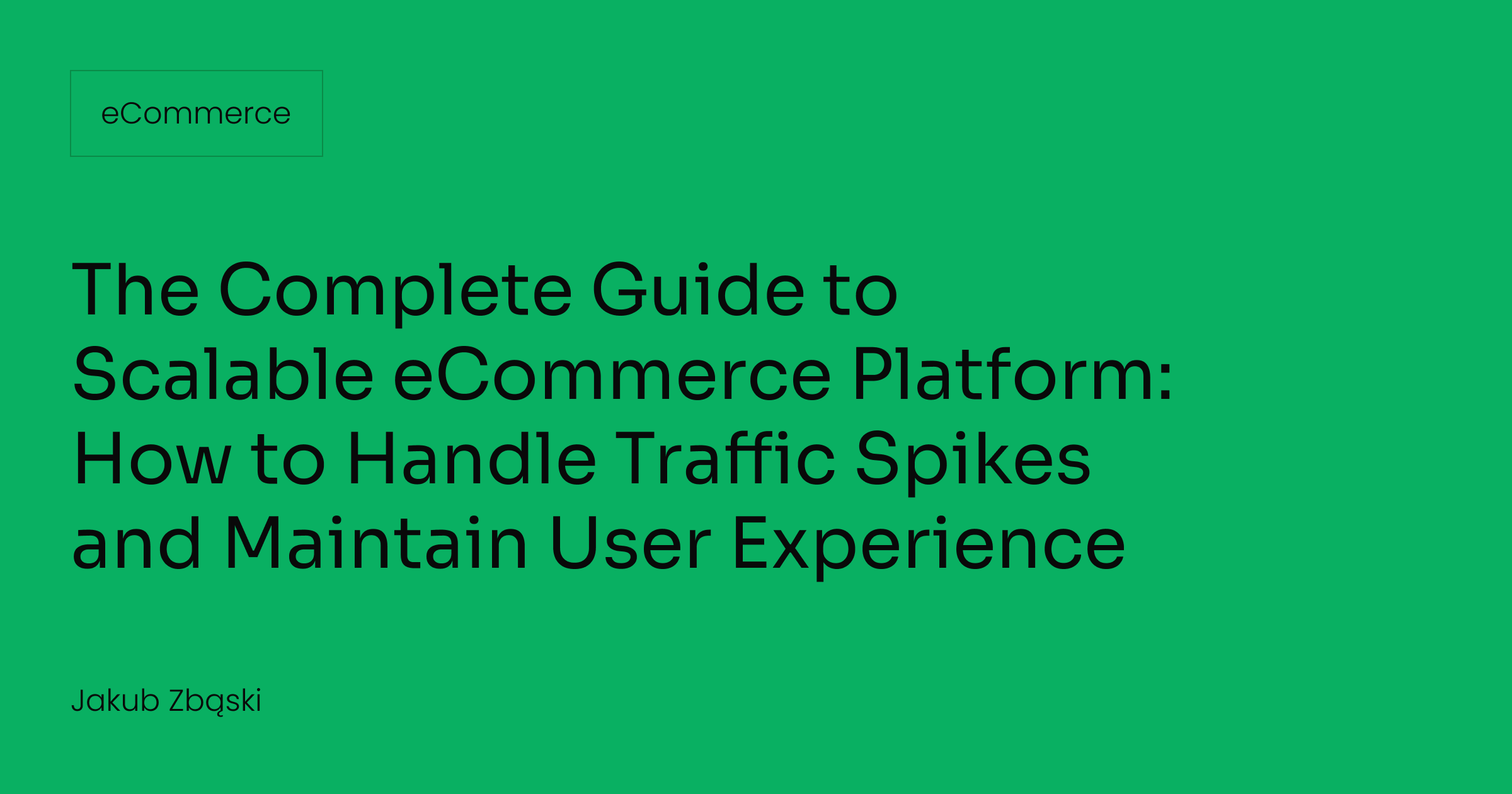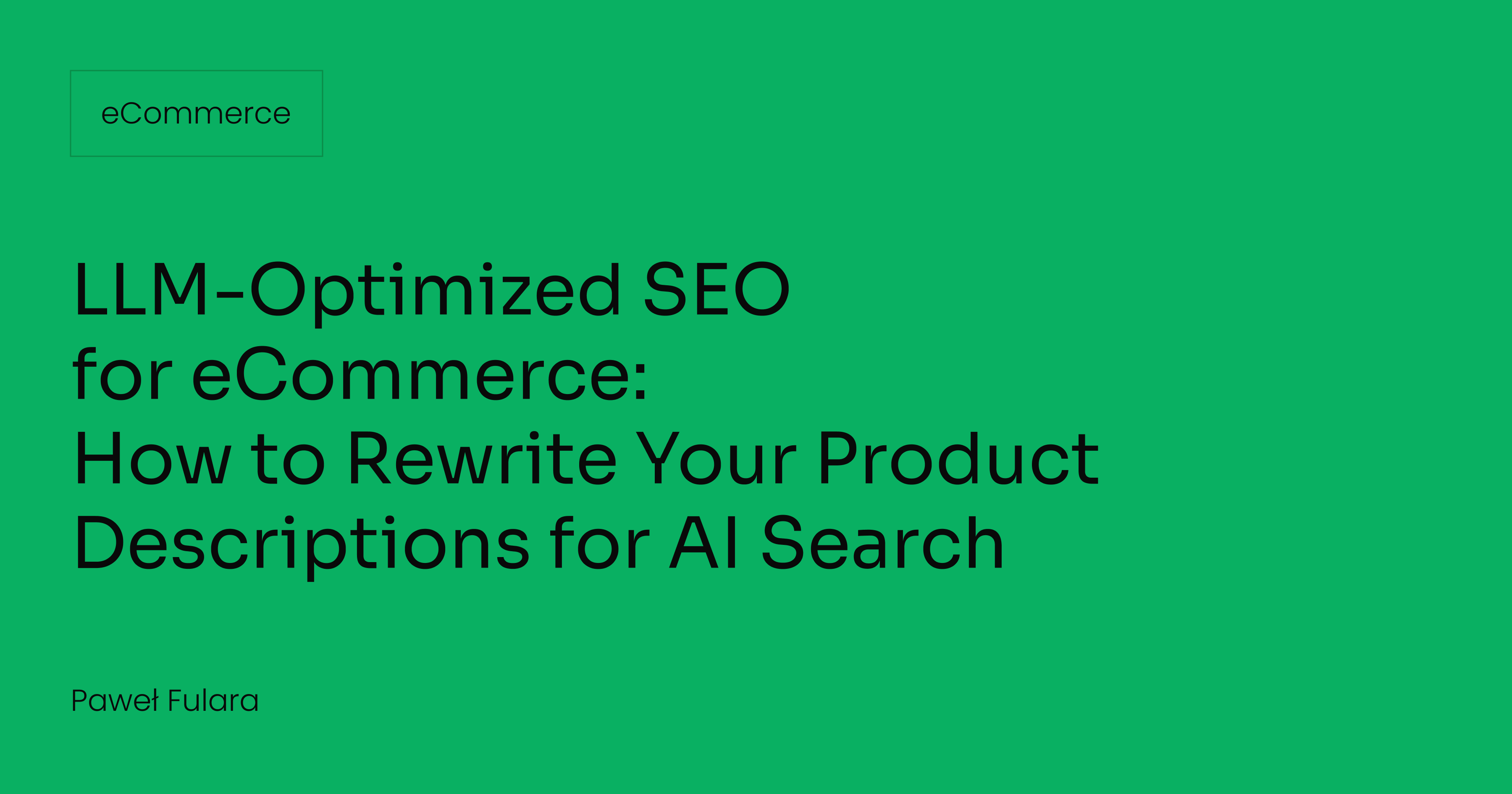Let’s talk about how we can build your commerce project — tailored to your business, powered by Rigby
The Role of Product Descriptions in eCommerce Success
A well-crafted product description has the power to draw customers and persuade them to make a purchase. However, manually creating product descriptions is time-consuming, especially when managing a large inventory. What is more, maintaining consistency in tone, style, and quality across all product descriptions can be difficult when multiple writers are involved. Also, keeping up with the latest trends and product details requires ongoing research, which can be a hassle. Balancing informative content with search engine optimization (SEO) without making it hard to read is tricky, too. Writers need to skillfully include keywords while keeping the focus on what's best for the customer.
Even small mistakes in descriptions can mislead customers and damage a brand's reputation. This manual process doesn't easily scale for businesses with big inventories and might not always follow SEO best practices effectively.
This is where AI tools for writing product descriptions come into play. Artificial intelligence leverages machine learning techniques to generate accurate and compelling descriptions. Through intricate algorithms, AI is capable of analyzing vast amounts of data, identifying patterns, language, and learning from them.
Natural language processing (NLP), a subfield of AI, further enhances this process by understanding the semantics and sentiment behind the text. By considering various factors such as audience demographics or writing prompts, AI can tailor its generated descriptions for different contexts effortlessly.
AI-generated content is inherently scalable and can produce unique, creative descriptions that highlight the benefits and features of products in ways that captivate and engage potential buyers, setting your offerings apart from the competition. As a result, these advanced technologies hold great potential in minimizing human effort while providing high-quality description generation. These include:
- Efficiency and Scalability: AI dramatically speeds up the process of creating product descriptions, enabling businesses to handle large inventories with ease. This efficiency can be particularly advantageous during peak seasons or when launching new products. Concentrate on growing your business while AI takes care of the content creation, ensuring your product listings are always fresh, engaging, and up-to-date.
- SEO Optimization: AI tools are adept at incorporating relevant seo keywords seamlessly into product descriptions, improving your website and online product visibility. Higher visibility in search results means more traffic to your site and, ultimately, higher sales potential.
- Ongoing Improvement: AI system gets better as it learns from new information. It watches how people react to what it creates to see what works best. The AI uses this information to get better at pulling out details, writing, and making its work more appealing, leading to better descriptions that sound more like they were written by a person. This agility ensures that your product listings are always accurate and relevant, enhancing customer trust and satisfaction.
- Personalization: AI excels in customizing product descriptions based on customer data, such as browsing history and purchase behavior, offering a personalized shopping experience that manual content creation cannot achieve at scale. This dynamic content adaptation not only improves engagement and boosts conversion rates but also fosters brand loyalty.
- Enhanced Creativity: AI can generate creative and unique descriptions that capture the essence of products in compelling ways. This creativity helps products stand out in a crowded market and reflect the character of the brand.
- Cost-Effectiveness: By automating the creation of product descriptions, businesses can reduce the resources and time traditionally spent on manual writing.
Overcoming the Challenges of AI Product Description Implementation
Implementing AI for product descriptions, while beneficial, comes with its set of challenges. However, these obstacles can be effectively overcome with strategic planning and execution.
- Integration with Existing Systems: A smooth implementation ensures that daily operations are not significantly disrupted. eCommerce platforms can continue to function without major downtime or glitches, which could otherwise affect sales and customer trust. To overcome this, businesses should seek AI solutions that offer easy integration capabilities (like Medusa.js) or consider hiring IT professionals to ensure a smooth transition.
- Quality Control: Ensuring the AI-generated descriptions meet high-quality standards and keep the brand’s tone can be a concern. Establishing a review process where content is periodically checked by human editors can help maintain quality. Additionally, training the AI model with brand-aligned data ensures the output remains consistent and accurate.
- Data Privacy and Security: The use of automatically generated product descriptions involves handling a lot of data, raising concerns about privacy and security. To mitigate these risks, businesses must implement robust data protection measures, such as encryption, access controls, and secure data storage solutions.
- Cost of Implementation: Costs include not only the AI software or service subscription but also potential investments in infrastructure upgrades, training for staff, and ongoing maintenance. However, the long-term benefits, such as increased efficiency, higher conversion rates, and improved customer satisfaction justify the initial outlay.
- Training and Adaptation: Allocating resources for this ongoing training is essential, as it ensures the AI system can adapt to changes in the business environment and consumer behavior. This involves regularly updating the AI model with new product information, customer feedback, and evolving market trends to improve accuracy and relevance.
Choosing the Right AI Product Descriptions Tool
When selecting an AI tool for product descriptions it's essential to consider various factors to ensure it meets your eCommerce business needs effectively. Here's a deeper dive into the features to look for:
- Ease of Use: A straightforward and intuitive interface ensures that team members can efficiently use the tool without extensive training.
- High-Quality Content Generation: The AI should have a strong ability to understand the context of your products and generate relevant descriptions that accurately reflect product features and benefits. Look for tools that use advanced natural language processing (NLP) technologies to ensure the content feels natural and human-like.
- Customization Capabilities: The tool should allow for adjustments in style, tone, and format to ensure consistency across all your product descriptions.
- SEO Optimization: The AI tool should have built-in SEO features, enabling it to suggest or automatically include relevant keywords and phrases that can help improve your product pages' search engine rankings, without compromising the natural flow of the text.
- Scalability: As your business grows, so will your need for more content. The chosen AI tool should handle an increasing number of descriptions without a drop in performance or quality.
- Integration Capabilities: Seamless integration with your existing eCommerce platform and content management system is essential for streamlining workflows and ensuring efficient content publication.
- Analytics and Reporting: Tools that offer insights into the performance of your content can be incredibly valuable. Look for features that provide analytics on engagement, SEO performance, and other key metrics.
- Transparent Pricing: Understand the pricing structure, including any potential additional costs for extra features, to ensure it fits your budget.
Top 10 Tools for AI Product Descriptions in Your eCommerce
These AI tools offer a range of features and capabilities tailored to the needs of eCommerce businesses. By leveraging these technologies, online stores can enhance their product descriptions, improve SEO, and ultimately drive more sales. Here are some of them currently available for integrating AI into your eCommerce product descriptions:
- GPT-4 by OpenAI: GPT-4, the fourth generation of the Generative Pre-trained Transformer by OpenAI, is a cutting-edge language model known for its ability to generate human-like text. eCommerce businesses can use GPT-4 to create detailed, creative, and highly relevant product descriptions that resonate with their target audience. Moreover, you can integrate it with Medusa.js, which you will read about in the next section.
- Copy.ai: It's a versatile tool that leverages AI to generate marketing copy within seconds. It's particularly useful for eCommerce sites looking to produce unique and compelling product descriptions, blog posts, headlines, and more, helping to drive sales and engage customers.
- Jasper: Jasper is an AI writing assistant designed to help businesses create high-quality content quickly. It's equipped with various templates specifically for eCommerce, including product descriptions, making it a valuable tool for online stores aiming to enhance their product listings with minimal effort.
- Writesonic: Writesonic is an AI-powered writing tool that excels in generating marketing copy for various purposes, including product descriptions. Its AI has been trained on successful copy from leading brands, ensuring that the generated content is of high quality and designed to convert.
- Simplified: Simplified is an all-in-one design and content creation platform that includes AI writing tools. It's perfect for eCommerce businesses looking for a comprehensive solution to create not only product descriptions but also social media posts, ad copy, and more.
- Bertha.ai: Specifically designed for WordPress users, Bertha.ai seamlessly integrates with popular eCommerce platforms like WooCommerce. It assists in generating product descriptions, blog content, and other website copy, making content creation effortless for online store owners.
- CopySmith: CopySmith is another AI tool that offers powerful capabilities for generating product descriptions, email templates, and more. It integrates with eCommerce platforms and provides features to combat writer's block, improve SEO, and streamline content marketing strategies.
- Anyword: Anyword is an AI copywriting tool that generates marketing copy optimized for conversions. Its predictive performance score helps eCommerce businesses choose the most effective product descriptions, improving engagement and sales.
- Hypotenuse AI: Hypotenuse AI is an AI writing assistant that excels in generating product descriptions, blog articles, and other types of content. It's designed to help brands create high-quality, consistent content that boosts SEO and customer engagement.
- Article Forge: Article Forge uses deep learning to automatically write high-quality, SEO-optimized articles and product descriptions. It's a powerful tool for eCommerce sites looking to scale their content creation efforts without sacrificing quality.
How Medusa.js and ChatGPT Integration Can Automate And Personalize Product Descriptions?
Integrating Medusa.js, an open-source headless eCommerce platform, with ChatGPT, a powerful language model by OpenAI, can enhance the online shopping experience for both the retailer and the customer. It ensures that businesses can quickly adopt and benefit from AI-generated product descriptions without significant technical hurdles.
Medusa.js provides the necessary eCommerce infrastructure and data management capabilities, while ChatGPT brings its sophisticated natural language processing and generation skills to the table. This powerful combination not only improves operational efficiency and content quality but also contributes to better SEO, brand consistency, and customer engagement, ultimately driving sales and growth.
But how it works?
- Create new product in Medusa's admin panel.
- Input basic information about the product, such as title, features, and specifications into the fields. You can also add more product features such as its price, variants, and more to generate a more unique description.
- Publish a product without a description.
- OpenAI will generate a description and updates the description of the product.
- Review the AI-generated content, making any manual tweaks or adjustments as necessary to ensure it aligns with your brand voice and SEO strategy.
You can check the documentation here! And if you want to learn more about Medusa.js read our other article - "The Future of eCommerce: Why investing in Medusa technology makes sense?"
Conclusion
The transition from manually crafted descriptions to AI-generated content is about recognizing the evolving landscape of online shopping and the increasing demand for personalized, dynamic, and SEO-optimized product narratives. AI's ability to produce compelling, customized content at scale offers online stores a unique opportunity to enhance their product visibility, improve customer engagement, and significantly boost conversion rates.
For online store owners, the message is clear: adopting AI for product descriptions is not just a strategic move for staying competitive, it's a pivotal tool for achieving and exceeding business objectives in a crowded and ever-changing marketplace. The time to embrace AI in your eCommerce strategy is now!











